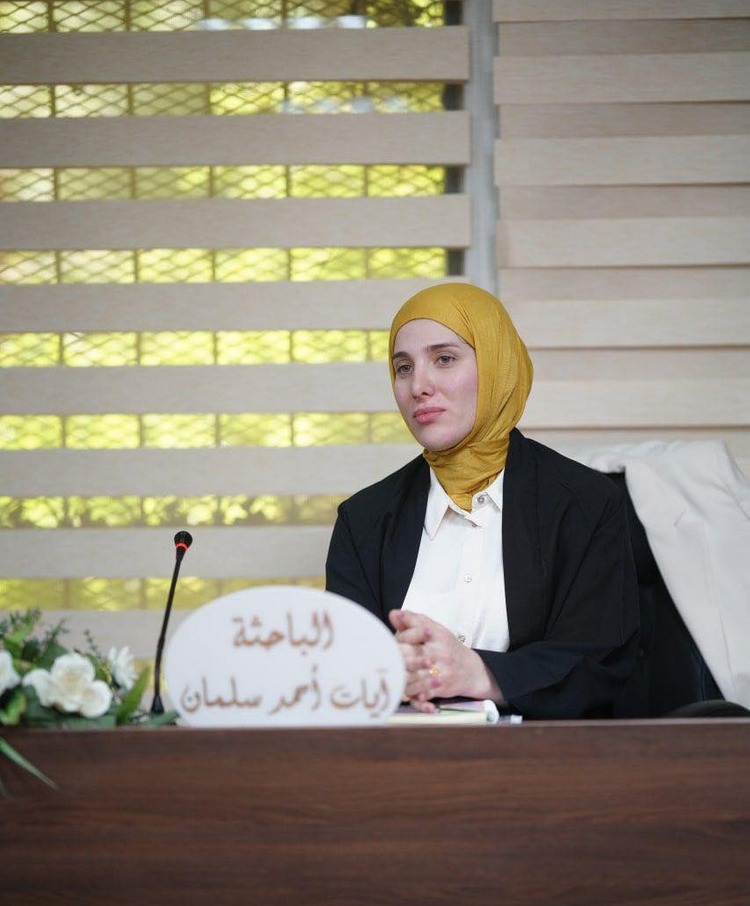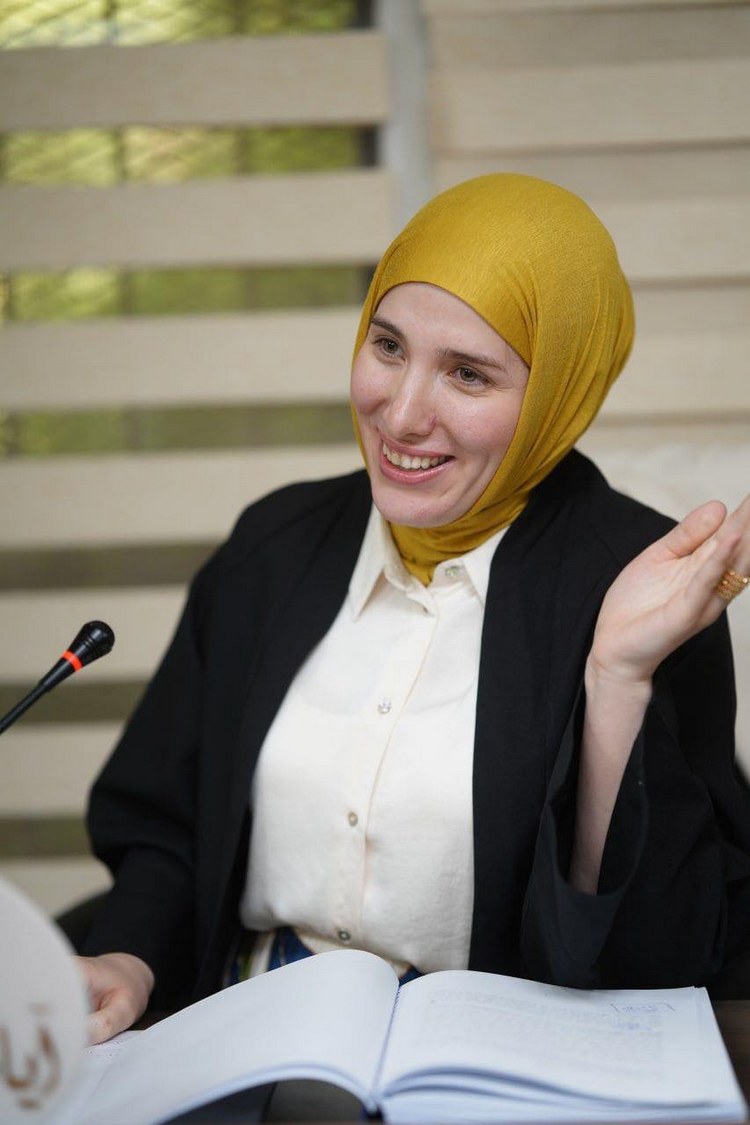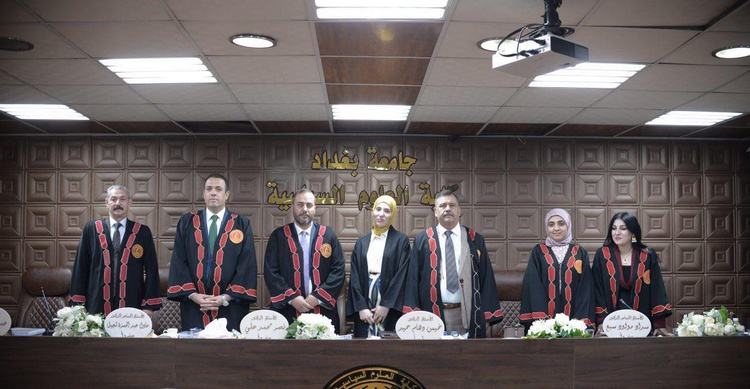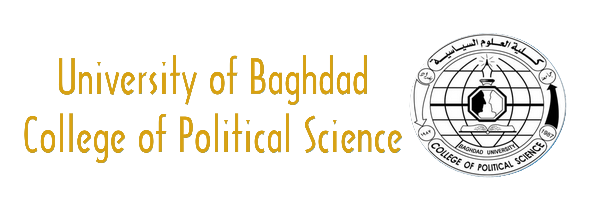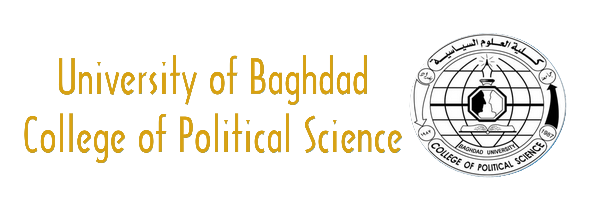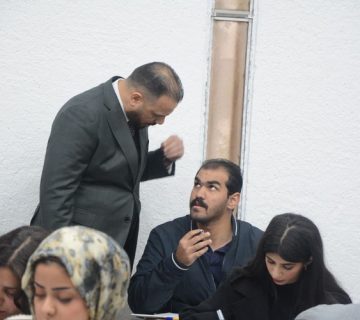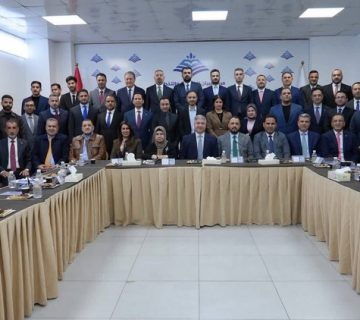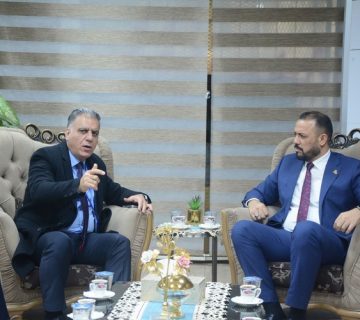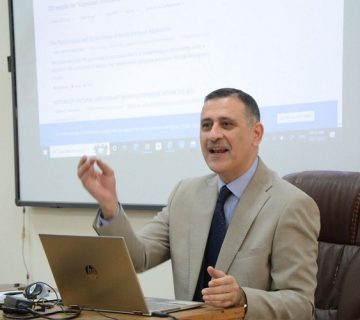The College of Political Science at the University of Baghdad recently conducted a doctoral thesis defense titled ‘The Role of Decentralization in Peacebuilding in Iraq as an Exemplar,’ presented by the student Ayat Ahmed Salman.
The thesis elucidates that the concept of peacebuilding, intrinsically linked to the Cold War era, stands as a pivotal and contentious subject. It symbolizes the state’s commitment to fostering peace and stability as an alternative to armed conflicts and as a means of post-conflict rejuvenation. This commitment has prompted intensified efforts and meticulous coordination to ensure the success of this undertaking, primarily by addressing the root causes of conflicts and the factors that exacerbate them, thereby averting their recurrenceThe role of decentralization in peacebuilding and the attainment of social unity and cohesion emerges as a critical instrument through which the state seeks to forge a unified national identity. It emphasizes the state’s identity and acknowledges social identity as an individual’s consciousness of belonging to a historic community that furnishes a functional framework for meeting their psychological security needs. It simultaneously serves as a reference point for shaping their cultural and ethical value system, governing their perceptions of the world, interactions therein, all without conflicting with their allegiance to the overarching national identity.Political administration, embodied by decentralization in multifaceted societies, emerges as one of the pivotal elements in the peacebuilding process. This underscores the paramount significance of peacebuilding founded upon decentralization in Iraq, serving as the bedrock for political stability. Devoid of political stability, the nation remains ensnared in crises across all strata.
Post the year 2003, Iraq grappled with a multitude of crises, spanning the political, security, economic, and service domains. These culminated in the crisis brought about by the terrorist organization ISIS, thrusting the nation into a profound abyss. Following the liberation from the clutches of terrorist ISIS factions, the nation necessitates a culture of genuinepeacebuilding, especially in light of the adverse aftermath left by the terrorist’s grip on the components of the Iraqi populace.
What is imperative today is the construction of a bona fide peace grounded in principles of tolerance, harmony, and love among the diverse components of the Iraqi populace. In conclusion, the researcher was conferred with a doctoral degree, earning a distinction of ‘very good, high.’ We extend our heartfelt wishes for success to all our esteemed students in their academic and professional pursuits.”
